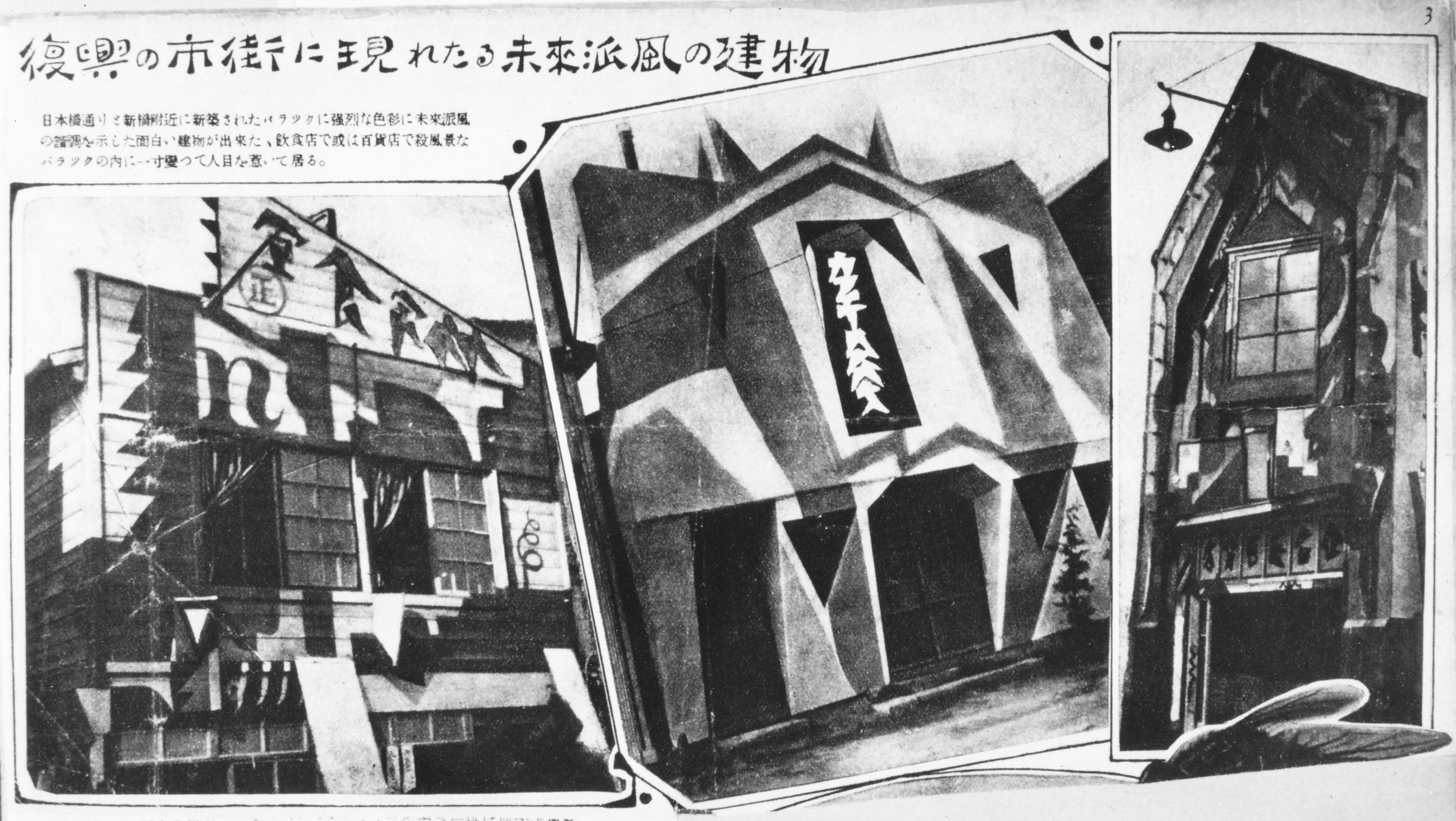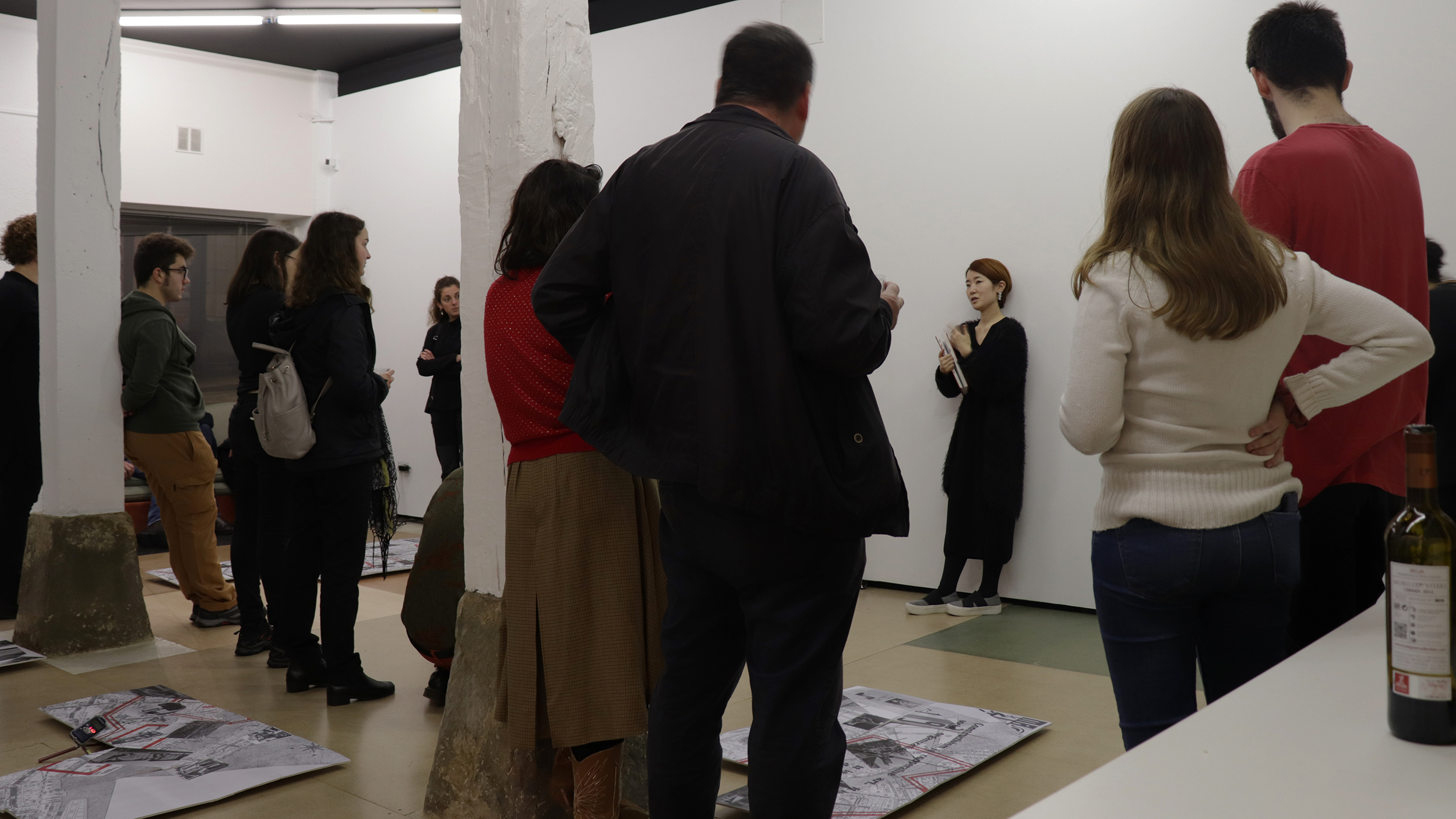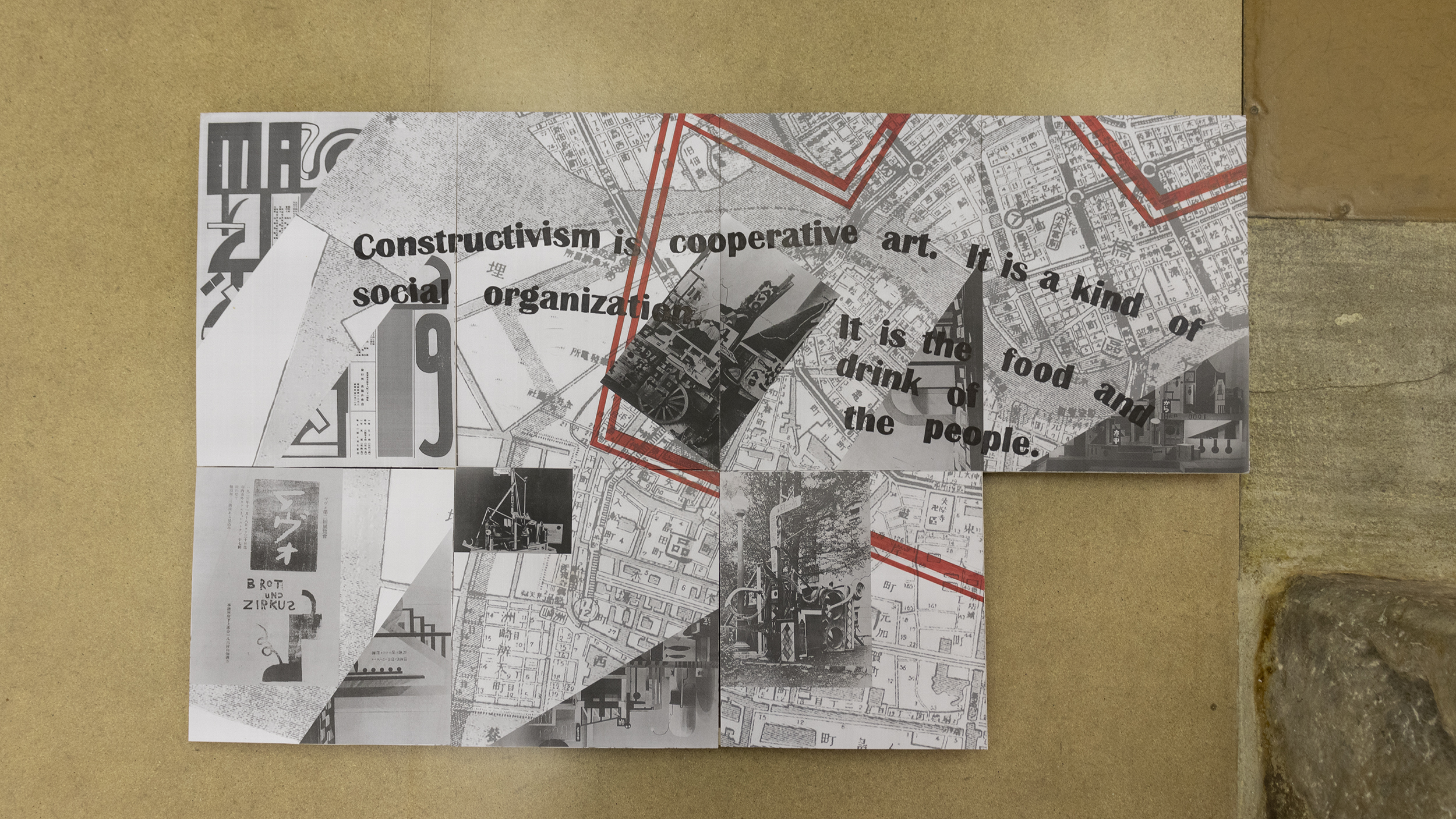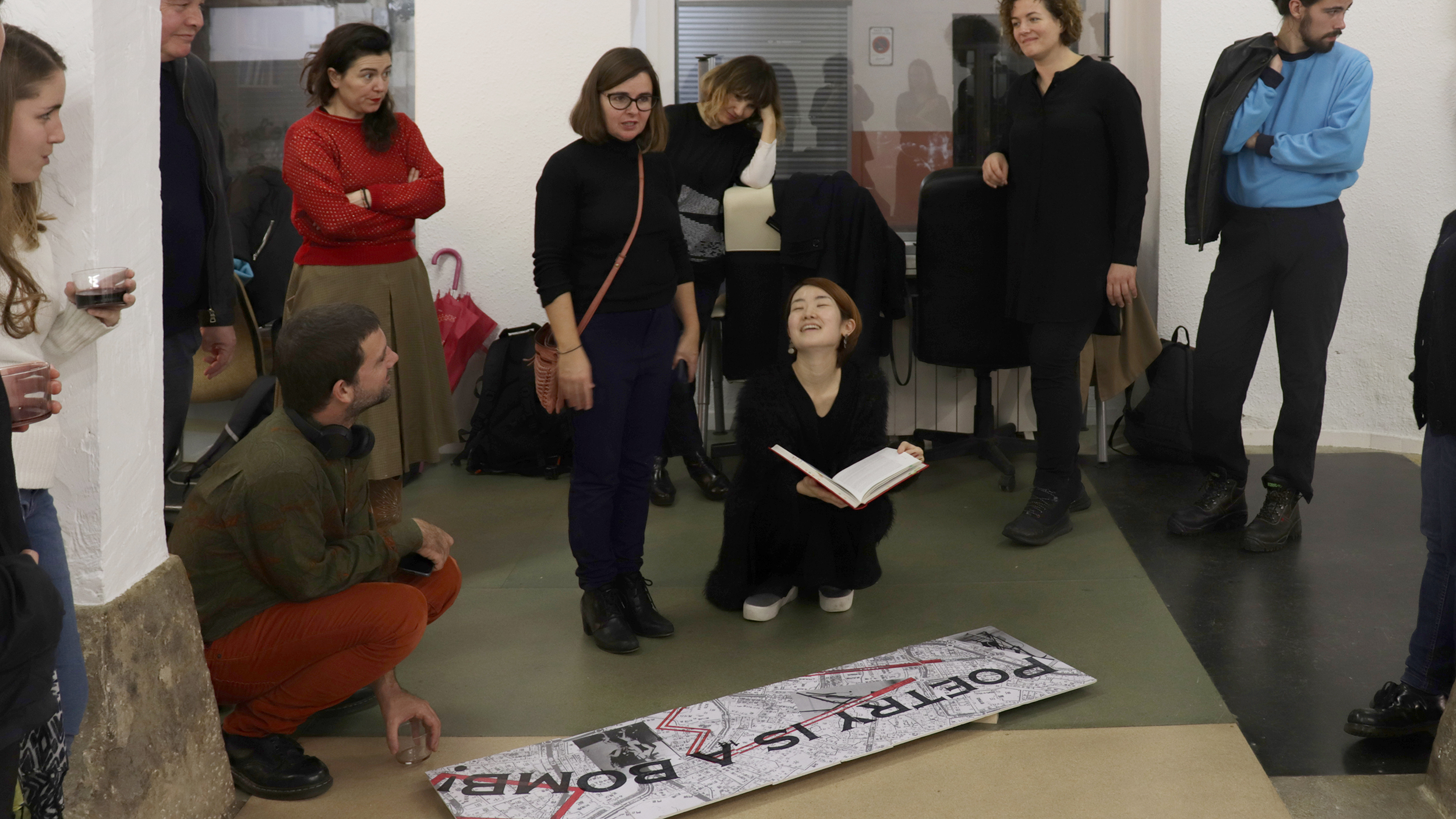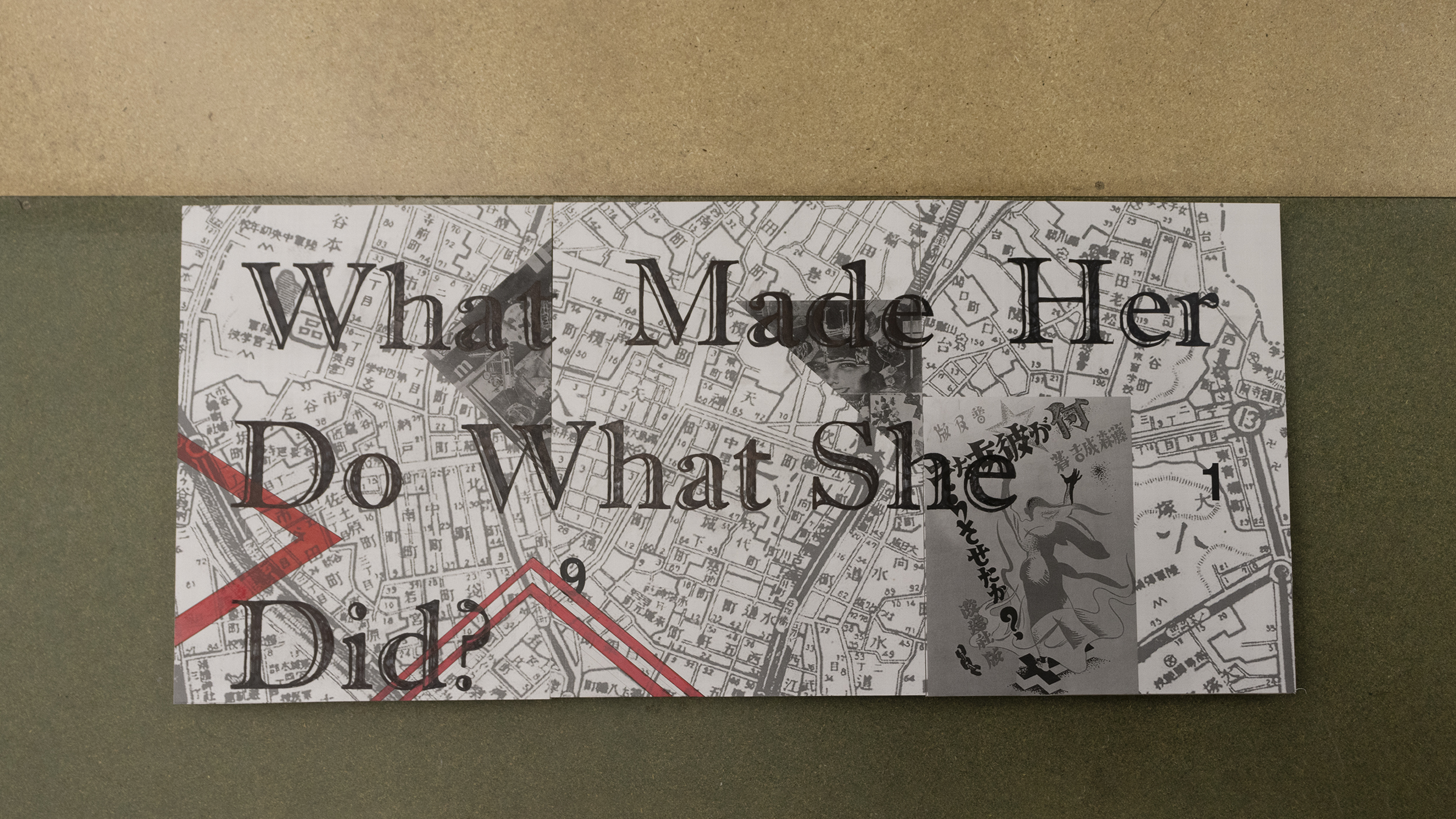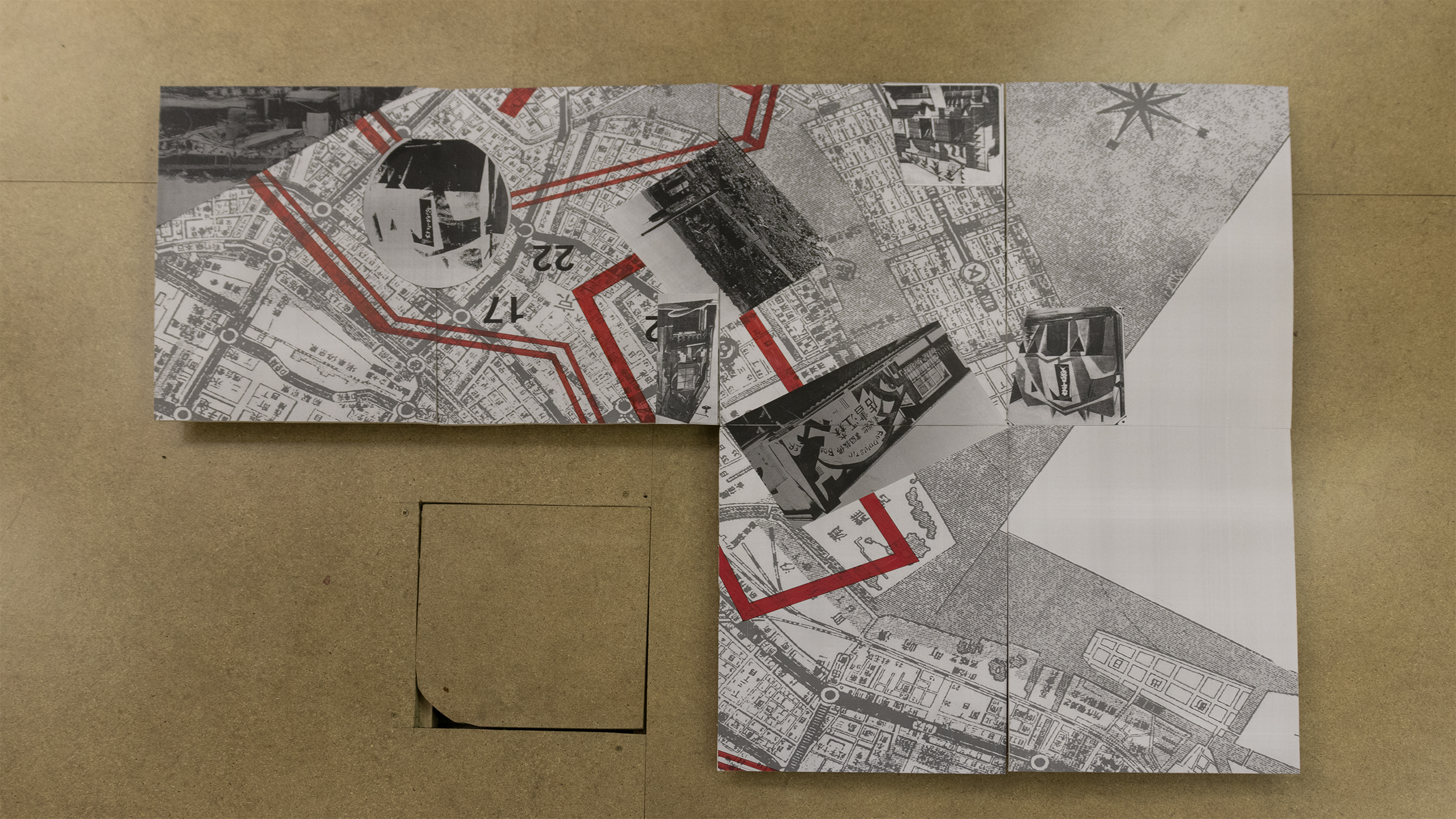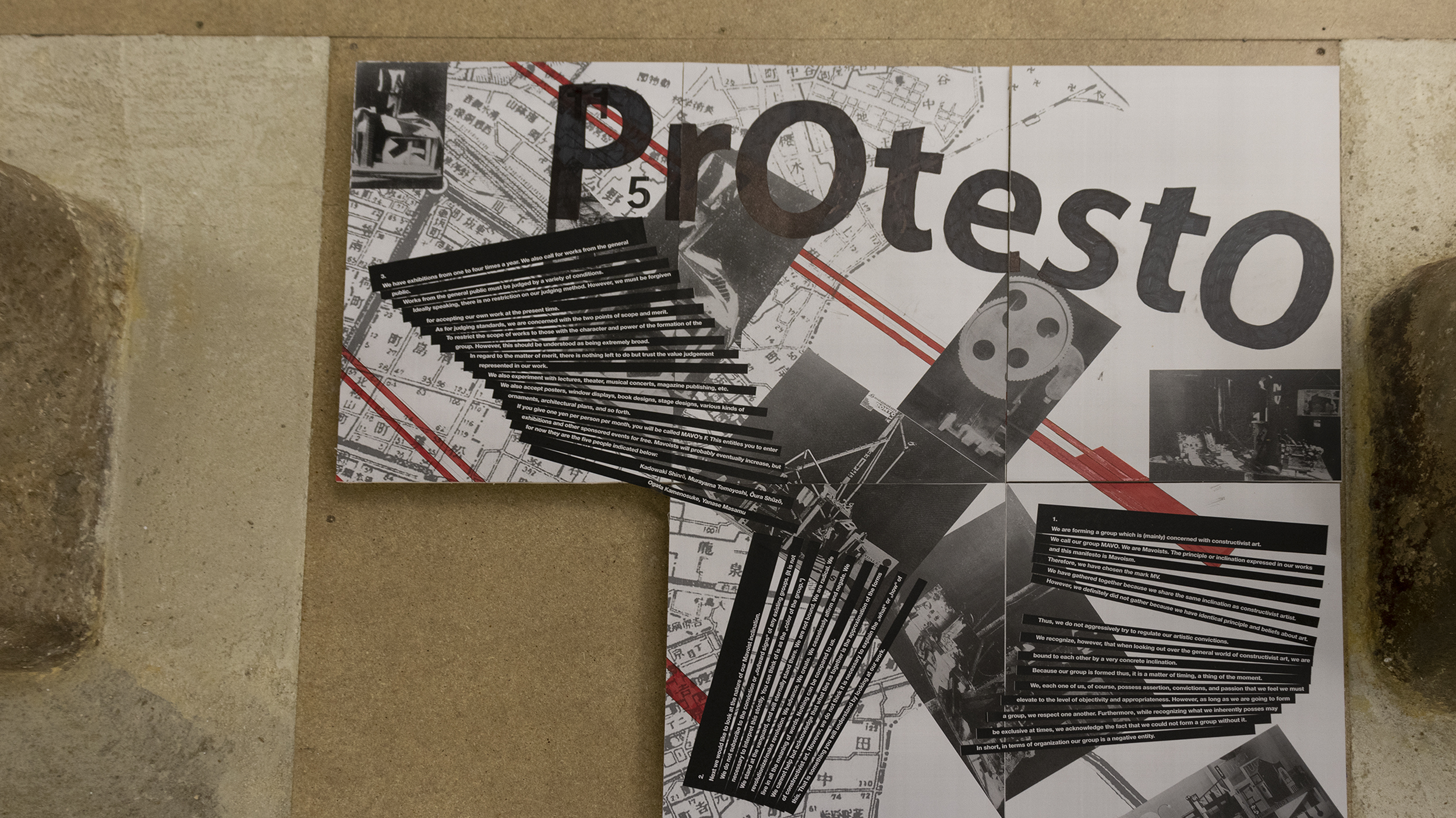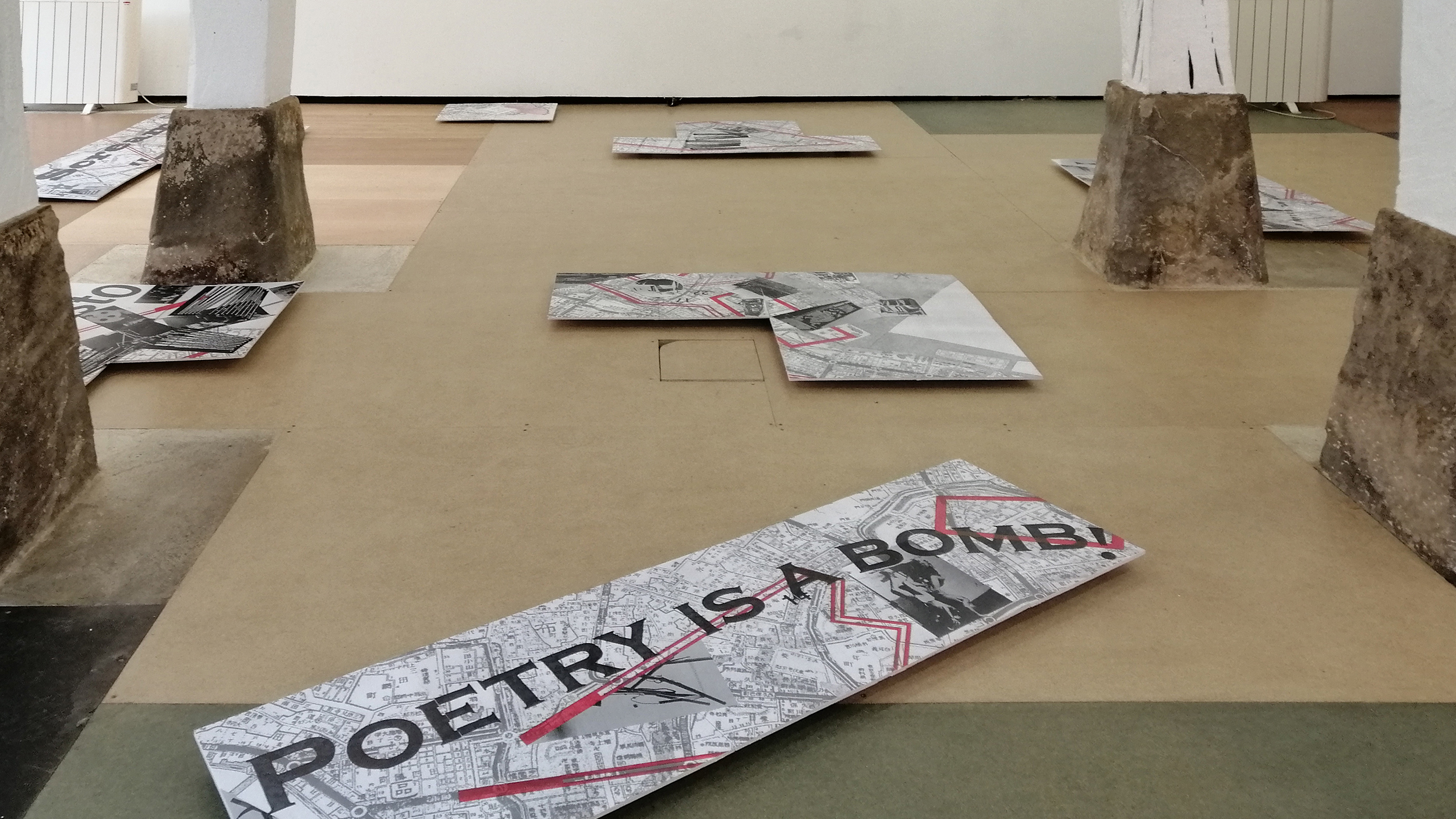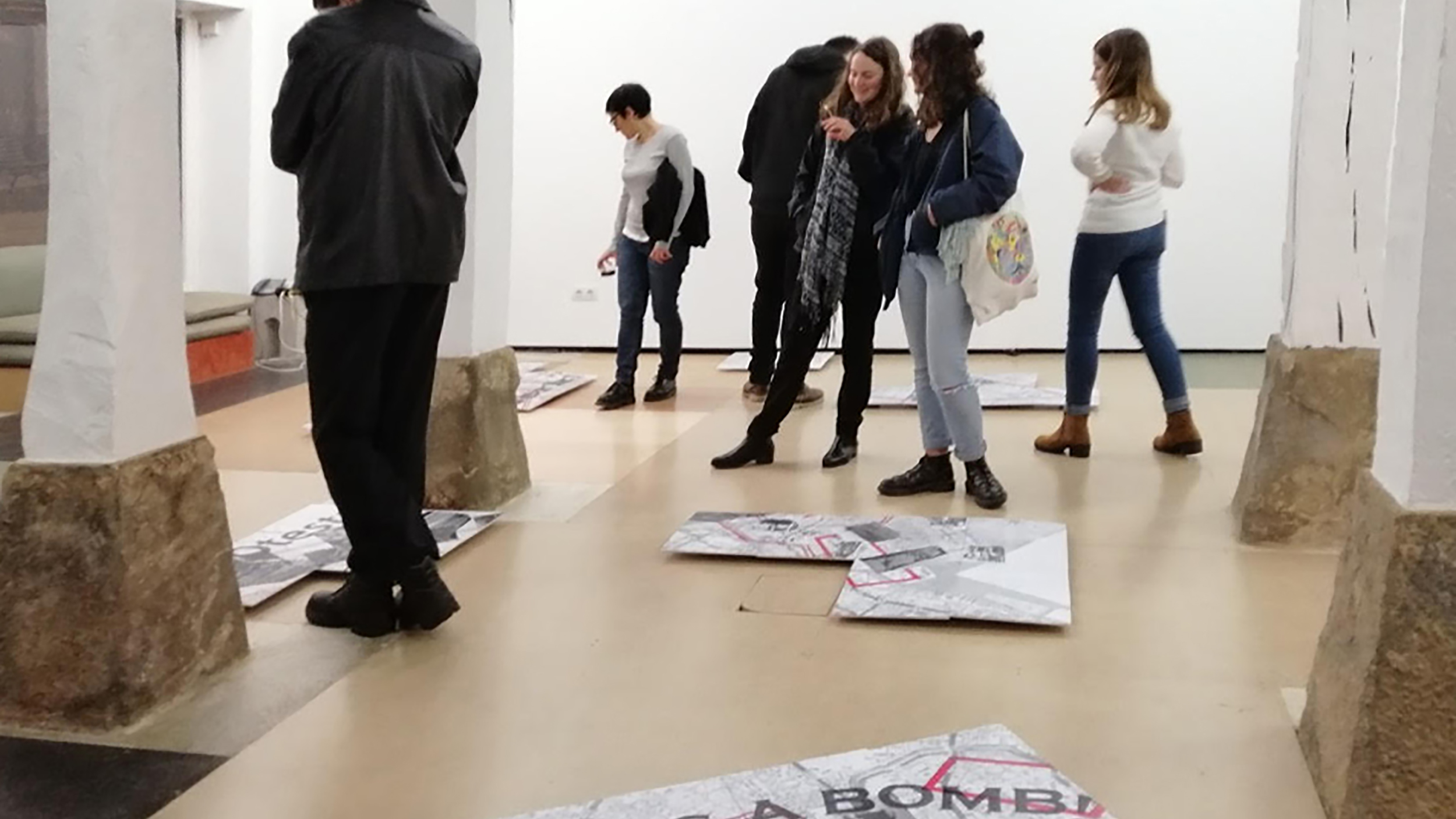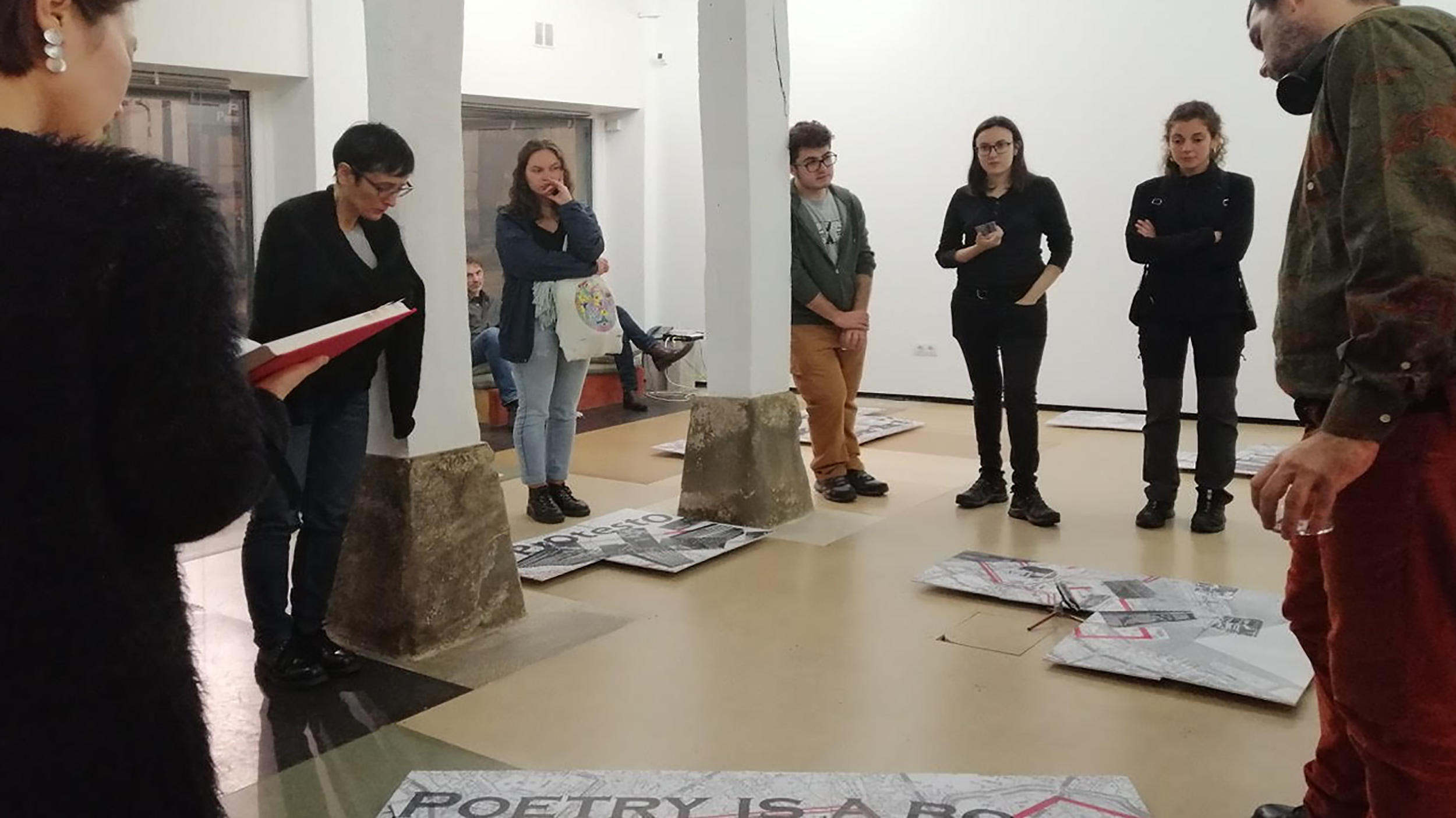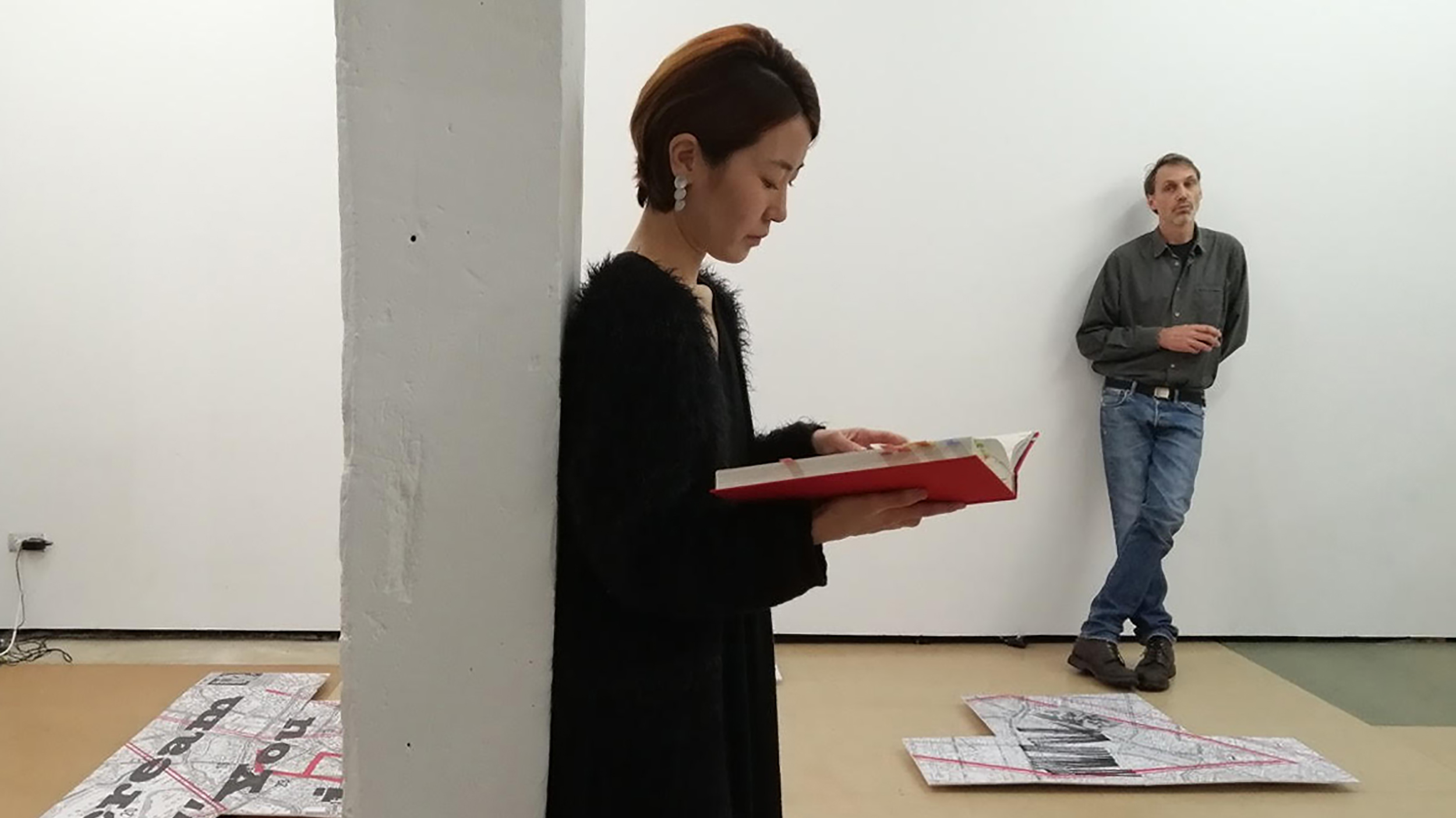Open Call Residency
YEN NOH: THE IM/POSSIBLE AVANT-GARDE: CAN WE TALK ABOUT MAVO?
by
Opening of Yen Noh’s installation and walking exhibition as part of her residency at Bulegoa z/b. Her proposal The Im/possible Avant-garde: Can We Talk About MAVO? was chosen, together with Camino a Far Lands by Oriol Ocaña Mariné, for residency in 2019; members of the jury for which were Iñaki Garmendia (artist), Julia Morandeira (researcher and independent curator) and the members of Bulegoa z/b.
Opening: November 5, Tuesday, 7:30 pm.
Dates: November 5, 6, 7, 15, 16, 22, 23, 29 & 30.
Opening hours: 4:30 pm–8:30 pm.
Yen Noh: The Im/possible Avant-Garde: Can We Talk About MAVO?
Yen Noh’s long-term research project Can We Talk About MAVO? (2016-), which takes various forms and iterations, aims to rethink a Japanese art group MAVO (1923-1926) in relation to the historical avant-garde and contemporary catastrophe. Located in the precarious line between appropriating Western modernism aesthetic in the current of internationalism and performing socially and politically significant actions against conventional forms of art production and its art institutions in the wake of the calamity of the 1923 Great Kanto earthquake, MAVO’s role in Japanese art history has been a challenge to look into.
The Im/possible Avant-garde: Can We Talk About MAVO?, which have been carried out in the residency, troubles dominant discourses of a comparatist view that enacts the West as a boundary that does not exist prior to comparison. The im/possibility of non-Western avant-gardes has been debated in those terms, whose lack of “originality” is determined by a “universal” historical avant-garde centered in a particular geographical and racial ideology. MAVO saw the disarray of post-earthquake Tokyo as the possibility of radical reconceptualization of a society against imperial authority. Looking into MAVO’s “conscious constructivism,” a series of their practice that was carried out in the streets, Yen Noh presents the mapping of MAVO’s “cultural anarchism” in disrupting the comparatist histories that present non-Western avant-gardes as particular, local and derivative versions of a “universal” historical avant-garde.
Yen Noh (Daegu, 1983) studied at Dutch Art Institute and the University of Applied Arts in Vienna. Her work investigates intimate histories of trauma, upheaval, and freedom during the Japanese colonisation of Korea, unearthing and recreating radical practices of everyday anarchy by those whose history is overlooked and unthought by an imperial/national project. She currently researches the Korean poet and architect Yi Sang and the Japanese art group MAVO.

